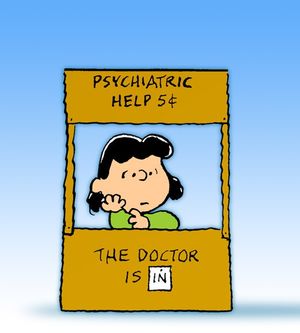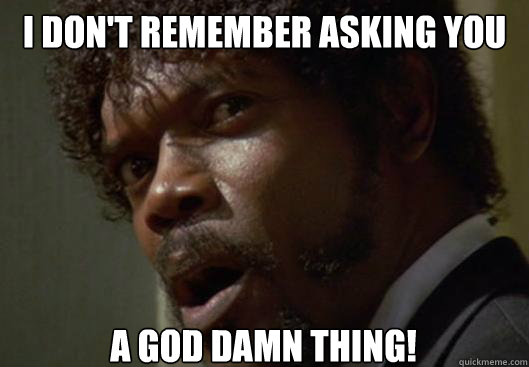
Here's my advice: Unless someone explicitly asks for your advice, do not offer advice. Maybe not even then.
When I tell someone about a problem I'm having, it is not equivalent to asking for advice. I am communicating to be heard and understood. I do not want or need someone else to solve my problems unless I specifically ask for that. Even if I lay out a problem and ask, "What should I do?" How do you know what I should do? Are you a doctor? A psychiatrist? A God? Thee God? A professional in a field related to the problem? If yes, by all means, feel free to bequeath your advice. No? Then perhaps just listen and indicate that you comprehend what is being said.
Really, do you want to be on the hook when your advice is taken and the result is terrible? Do you want credit when the result is awesome? Do you want to be in the business of controlling the puppet strings of other people's lives? Are you really, "just trying to help"? Do you think it is helpful to aid someone in avoiding making their own decisions or taking responsibility for their own life?
If all else fails, try empathy. What do you want from others when you share a problem? Do you want to be heard, understood, reminded that you're not alone, and figure out your own path? Or do you want others to steer your life for you?
Self-sufficiency builds upon itself. It is less prone to blame, guilt, resentment and other emotional gremlins.
I realize a lot of people do relate problems with the expectation that they'll be given free advice, but I would be ever so grateful if we could all lose that expectation.
Nobody ever knows your life better than you do. Nobody ever knows what fresh hell it is to be you every day, what you personally struggle against or yearn for, and there really isn't enough time to go over all of the possible scenarios. Life's too short.
When I relate a situation and it sounds like I'm conveying a conflict or a question I'm trying to answer or a sense of unsureness about a direction to take, the result is often free advice. Someone thinks it's funny or helpful or important to offer, "Maybe you could..." or "Have you tried..." or, amazingly, "I think you should..."
Oh. My god. I want to stop them right there and note, "There are not enough hours in a day to go over all of the possibilities that you could offer because your imagination isn't even constrained by what I already know about my self and my life. We could be here forever while you conjure up All the Options."
I have no interest in walking down an endless road volleying back, "Well, that won't work because..." or "Right, yeah, I already thought of that and here's why that won't work..." or "Sure, I guess that's possible but not really for me because..." (...because I am dealing with 20 other issues that you don't know about which prevent me from taking that route and some are so embarrassing or shameful that I won't even admit them to myself, so you'll never understand why your options are not options for me.)
Maybe you're a problem-solver at work or for your kids or family, so it's hard for you to know when to turn it off. I do it too sometimes. When I catch myself, I like to point out what I've done, even though people sometimes don't take offense or it doesn't occur to them that what I've just done is conveyed to them that I think I know better than they do what options are worth pursuing in their life. It's as if I've said, "Here, I'll do it... just let me... I'll do it myself! There, now your problem is fixed. I helped! I'm a helper. I fix other people's lives and problems and it makes me feel valuable. You're welcome!"
Truly the greatest gift someone can give me when I tell them about a problem I'm dealing with is to listen and convey to me that they understand what I'm saying about how the problem is affecting me. That's it. Simple.
If I want someone's advice, I will ask with respect and humility, "I'd like to hear your perspective on an issue I'm dealing with, I'm open to hearing your advice if you're open to offering it." It's an honoring, a measure of respect to someone to say, 'I am interested in your opinion about how I might proceed'.
It's the opposite of respectful to offer advice when people don't ask for it.
Sometimes we need to ask for help, and ideally, we shouldn't feel any embarrassment in doing so. It really is just an extra problem that usually doesn't need to be there, because who among us doesn't enjoy helping others... just ask all the free advice givers out there how much they love helping others. We should help those who ask for it when we can. But, offering advice that someone didn't ask for is not helping. It is not listening, it is hearing what someone says but then turning it into your own problem. It is taking, not giving.
The Wikipedia entry for advice contains these pertinent passages:
"In some cultures advice is socially unacceptable to be released unless requested. In other cultures advice is given more openly ... Many people consider unrequested advice to be paternalistic and patronizing and are thus offended.
"Therefore, some people may come to the conclusion that advice is morally better to be left out of the equation altogether, and this theory is included within the following quote (author unknown): The best advice is this: Don't take advice and don't give advice."
It's rude. In my mind, every time someone offers me advice I didn't ask for, this is what I'm thinking:
